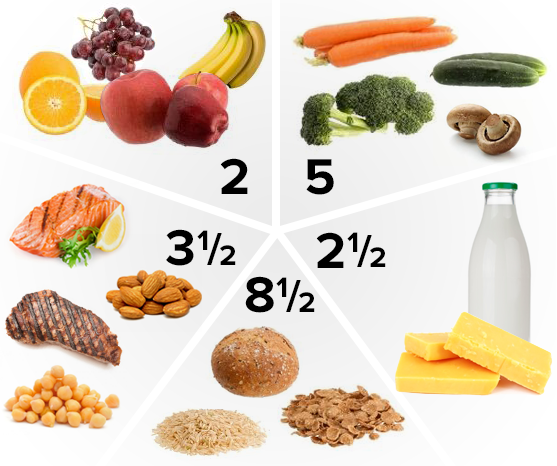
Pregnancy Eating Healthy: A Comprehensive Guide to Nourishing Your Body and Baby
Pregnancy is a transformative journey that requires significant nutritional adjustments to support the growth and development of your baby. Eating a healthy diet during pregnancy is crucial for both your well-being and the health of your little one. This comprehensive guide will provide you with evidence-based information on the essential nutrients, food groups, and dietary guidelines to follow throughout your pregnancy.
Essential Nutrients for Pregnancy
Your body’s nutrient requirements increase significantly during pregnancy to meet the demands of fetal growth. Here are the key nutrients you need to prioritize:
- Protein: Essential for building and repairing tissues, including the placenta and baby’s organs. Aim for 71 grams per day.
- Iron: Vital for red blood cell production, which carries oxygen to the baby. Aim for 27 milligrams per day.
- Calcium: Crucial for bone development and nerve function. Aim for 1,000 milligrams per day.
- Vitamin D: Aids in calcium absorption and supports bone health. Aim for 600 international units (IU) per day.
- Folic Acid: Essential for preventing neural tube defects in the baby. Aim for 600 micrograms per day.
- Omega-3 Fatty Acids: Important for brain and eye development. Aim for 200 milligrams of DHA per day.
Food Groups to Emphasize
To ensure adequate nutrient intake, focus on consuming a variety of foods from the following food groups:
- Fruits and Vegetables: Rich in vitamins, minerals, fiber, and antioxidants. Aim for at least five servings per day.
- Whole Grains: Provide fiber, vitamins, and minerals. Choose whole-wheat bread, brown rice, and oatmeal.
- Lean Protein: Essential for building and repairing tissues. Include lean meats, poultry, fish, beans, and lentils.
- Dairy Products: Excellent sources of calcium, protein, and vitamin D. Choose low-fat or fat-free milk, yogurt, and cheese.
- Healthy Fats: Support fetal brain and nervous system development. Include avocados, nuts, seeds, and olive oil.
Dietary Guidelines for Pregnancy
In addition to consuming a nutrient-rich diet, follow these dietary guidelines to optimize your health during pregnancy:
- Increase Calorie Intake: Your calorie needs will gradually increase throughout pregnancy. Aim for an additional 340 calories per day in the second trimester and 450 calories per day in the third trimester.
- Hydrate Adequately: Drink plenty of fluids, especially water, to support blood volume and prevent dehydration.
- Limit Certain Foods: Avoid raw or undercooked meat, fish, and eggs to prevent foodborne illnesses. Also, limit caffeine intake to less than 200 milligrams per day.
- Choose Safe Fish: Some fish, such as tuna and swordfish, contain high levels of mercury, which can be harmful to the baby. Limit these fish or choose low-mercury options like salmon, cod, and shrimp.
- Wash Produce Thoroughly: Rinse fruits and vegetables well before eating to remove any bacteria or pesticides.
- Avoid Alcohol and Smoking: Alcohol and smoking can have detrimental effects on the baby’s development.
Foods to Avoid During Pregnancy
Certain foods should be avoided during pregnancy to protect both you and your baby:
- Raw or Undercooked Meat, Fish, and Eggs: Can contain bacteria that can cause food poisoning.
- Unpasteurized Milk and Cheese: May contain harmful bacteria.
- Liver: High in vitamin A, which can be toxic to the baby in large amounts.
- Raw Sprouts: Can harbor bacteria.
- Certain Fish: High in mercury, which can damage the baby’s nervous system.
- Alcohol: Can cross the placenta and affect the baby’s development.
- Excessive Caffeine: Can lead to low birth weight and other complications.
Sample Meal Plan
Here’s a sample meal plan that provides a balanced intake of essential nutrients during pregnancy:
- Breakfast: Oatmeal with fruit, nuts, and milk
- Lunch: Salad with grilled chicken, quinoa, and vegetables
- Dinner: Salmon with roasted vegetables and brown rice
- Snacks: Fruit, yogurt, or whole-wheat crackers with hummus
Conclusion
Eating a healthy diet during pregnancy is essential for the well-being of both you and your baby. By prioritizing nutrient-rich foods, following dietary guidelines, and avoiding certain foods, you can provide your growing child with the optimal nourishment they need for healthy development. Remember to consult with your healthcare provider for personalized advice and support throughout your pregnancy journey.